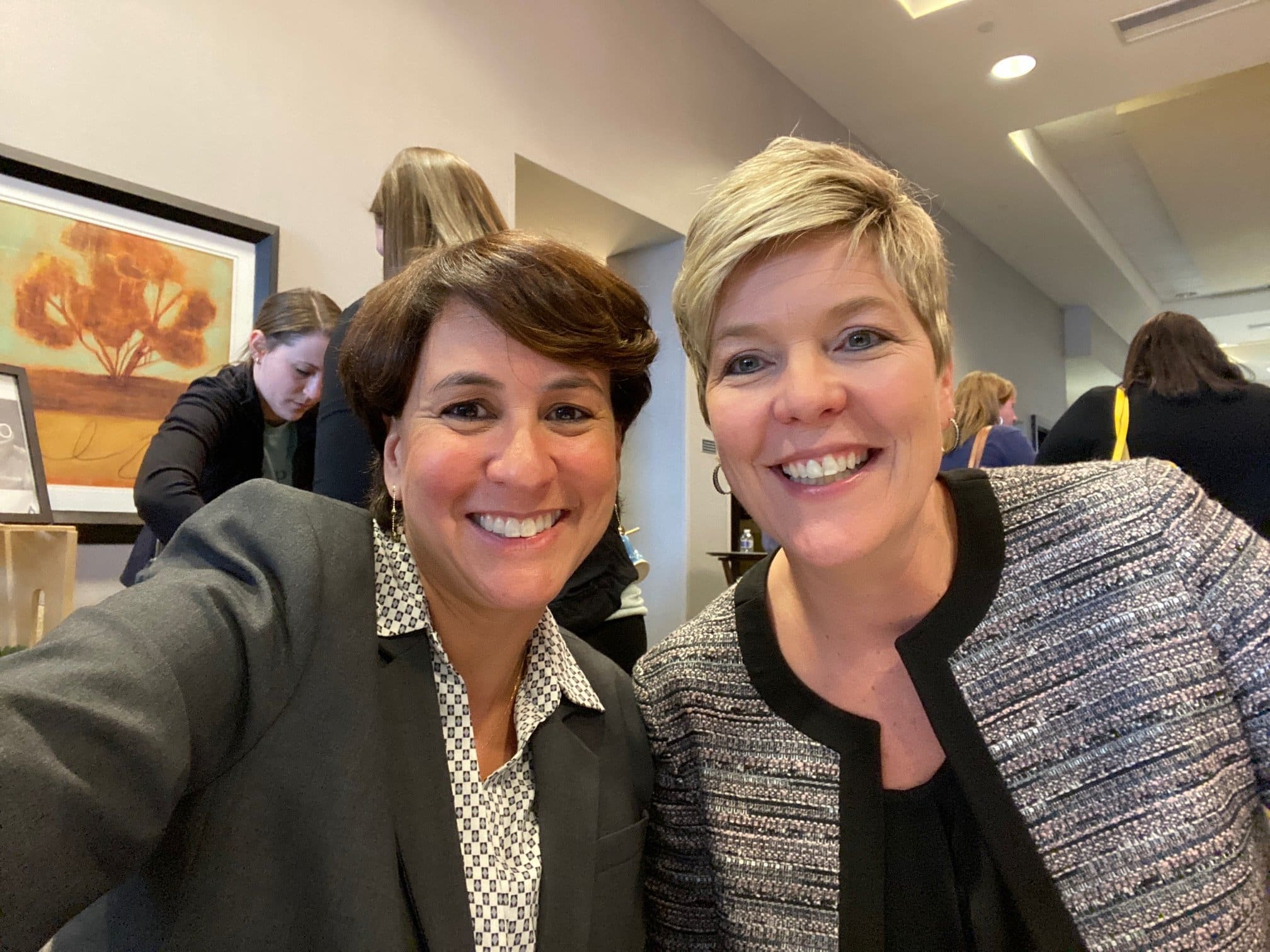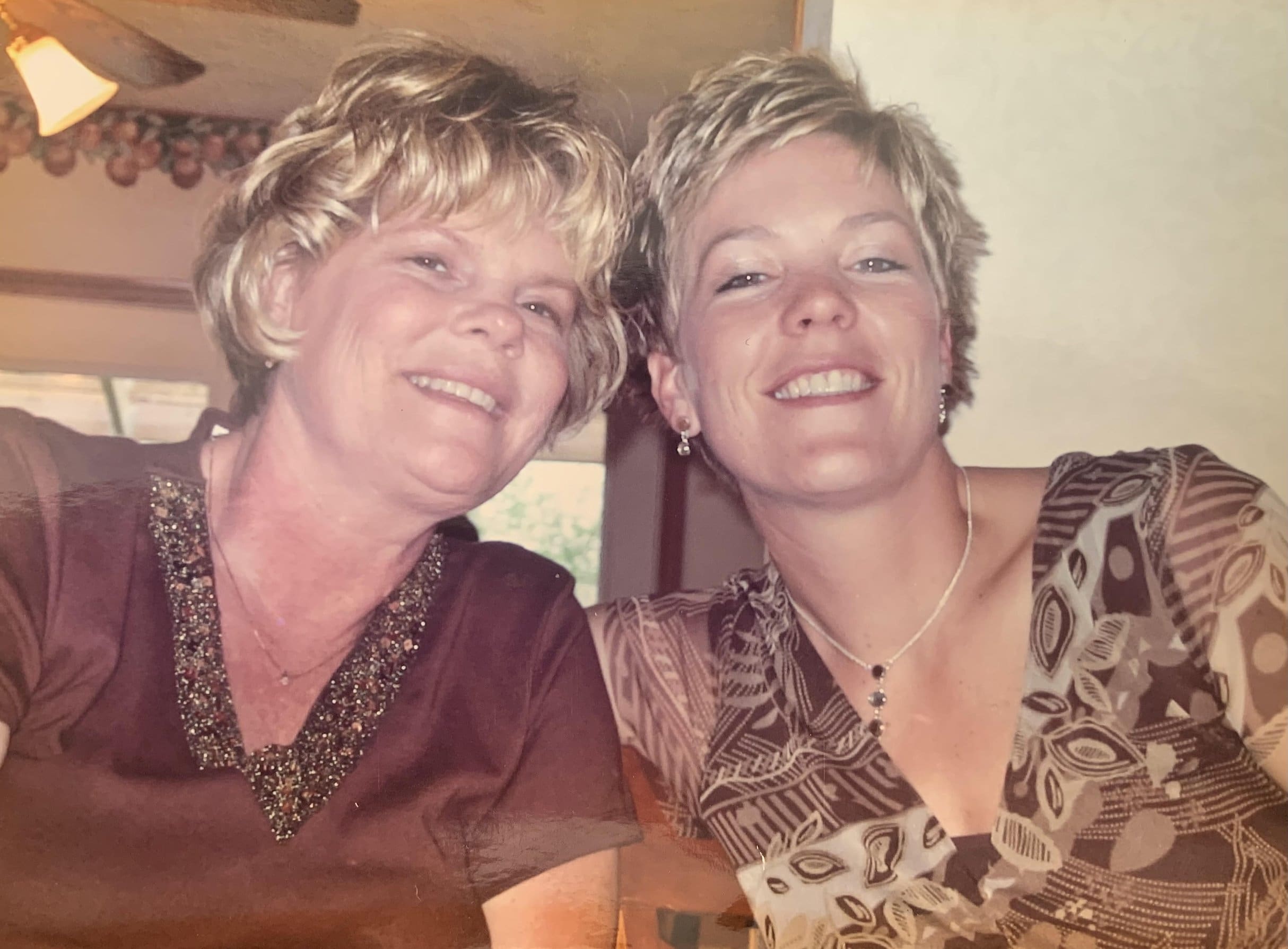MAY 2022 | DR. CHRISTINA M. KISHIMOTO
I sat with Shelly Vaughn in the busy conference center hallway among vendors, with over four hundred women busily walking around us, and told her that I wanted to learn her story. She had just received the Betsy Cowles Award in Ohio, nominated by her peers, for her dedication to equity. As I sat in the audience I wondered whether she was experiencing a flashback to a quieter time when she began her first few days of teaching in rural Indiana. That was twenty-seven years ago. Imagine if someone had told Shelly on that first day of teaching that she would spend her career touching others – elevating students, advancing leaders, supporting communities. Like every other educator, she would have looked at her students and said, I just need to get through today!

A few weeks after meeting Shelly for the first time in Columbus, Ohio, we sat down over zoom and her story unfolded. It is a reflective story of being true to oneself in the midst of political chaos.
Shelly and her large extended family are farmers from Indiana. The rotary phone with the shared community line, along with the farming equipment was the technology she grew up with. “When I got home after school, if I wanted to connect with my friends, it was, let me pick up the rotary phone, and Ima Jean the lady down the road was using the line. So I couldn’t talk until she was off!” She laughs. Her upbringing was grounded in the values of family, the land, hard work, and kindness. And so, when she received the Betsy Cowles award all of these years later, she reflected, “It was nice to be recognized for those things that I highly value, which is empowering others and serving others.”
But the relative simplicity of farm life was replaced during her career advancement with the complexity and politics of education leadership. Serving as a bold leader for equity means finding yourself making decisions in the midst of the contraflow of gender and racial politics. Shelly shares, “Bold leaders for equity, when they see an inequity or even the potential for an inequity, call it out. It’s pressure with support. Helping people to recognize the inequity they are creating, and providing support so that they can better understand.” This is her servant leader mindset. Holding fast to equity of access expectations while bringing others along by building their understanding of systemic inequities.
While leadership matters, equity-minded leadership is very challenging in today’s political environment. From Boards of Education that are blatantly stating their gender bias in Superintendent selection processes to divisive national policies affecting the public school system, this is a difficult time to lead. At the national level, “everything is a divisive issue. Everything! And that’s frustrating to me. The media is also part of this storytelling. And so, it’s making it very difficult as leaders to speak up on equity matters. We can’t just have a conversation. We can’t engage and listen to one another for understanding, and learn from each other. Our culture no longer supports that.”
Shelly is concerned about the impact of racial and gender politics and misinformation on students. She believes educators – teachers and leaders, have a critically important role today in helping students to navigate through the political rhetoric that is interrupting decency in conversation. “So much of what we have to do as educators today is help students to navigate information. Help them understand what’s a credible source and what is not. Help them to understand the power of AI in social media today.” Shelly also believes that never has it been more important “to help students have voice and choice and be drivers of their learning, and to help them understand all of this information that is coming their way.”
Shelly further believes that the narrowing view on accountability has taken the innovation and joy out of learning, out of the classroom, and out of the hands of teachers. “It’s hard because there are so many bills introduced right now around divisive concepts.” She names some of the controversial issues such as representation of diversity in the curriculum, teacher control of pedagogy, and allowing video access by parents to the classroom. “Come on! That creates a whole lot of minutia that are forcing educators to step through compliance boxes and they are not afforded the time to focus on the things that really matter. Getting to know every student and meeting them where they are.”
I asked Shelly how the policy table might look different if students were leading education policy. “It’s all about accountability with adults. We have to have measures for everything. If students were at the policy table they would talk about wellness and wholeness, personalization, owning their learning. I think it would look very different.” Shelly holds a deep belief that, “Students need multiple opportunities to demonstrate learning. Students should be able to move around learning opportunities and not be locked into one grade level for a year. Students need personalization of learning. We need to pay attention to the whole child.”
Then there is the added pressure around the politicized issue of women’s voice in education policy – a fact that matters greatly in a field where more than 75% of the nation’s teachers are women. Shelly tells women to select carefully where they choose to work, and with which boards. She believes that the work of tearing down systemic bias has become terribly difficult, and that women at the end of the day must make, and should make, decisions for themselves without judgment. “I don’t know that I want to give up what I really value for the political crap. I think that’s what prevents women from taking the next step in leadership positions, across organizations and politically. It’s just not appealing. I think about the time the political crap takes away from the things I could’ve done from a different place within the organization. I’ve had that conversation with a lot of women.”
We talked about the exhaustion of being first, breaking through, breaking barriers, and then also expecting women to be successful. “It’s a lot to ask.” Being first often comes at a tremendous personal sacrifice and women need to consider what they are willing to give up in order to break through institutionalized gender barriers for the women that follow behind them.

But Shelly is the consummate optimist. And she learned this from her mother, who at the young age of 59 died of breast cancer, leaving a legacy of kindness and hope embedded in her family. “My mom had an irrational sense of hope and I have that irrational sense of hope. That’s definitely part of why I am in this position.”
And so as Shelly accepted her award, a colleague at the conference encouraged her to just enjoy this moment. Shelly couldn’t help but smile broadly, with her husband by her side, and her daughters proudly watching their mom. The Vaughn ladies will continue their deep conversations around the table about their leadership choices as women and as a family. But for now, a standing ovation for Shelly!
————————–
Shelly Vaughn is in her seventh year as the Superintendent of the Mercer County Educational Service Center – one of fifty-one education centers in the State of Ohio that provide support to school district leaders. She started her career as a special education teacher. By the age of 38, she was the school Superintendent for the Fort Recovery Local Schools.

Featured Voice for Equity made possible through the generous sponsorship of Scholastic. Thank you Scholastic for recognizing the value of the inspirational personal stories of women Superintendents who lead across our nation’s public schools.

